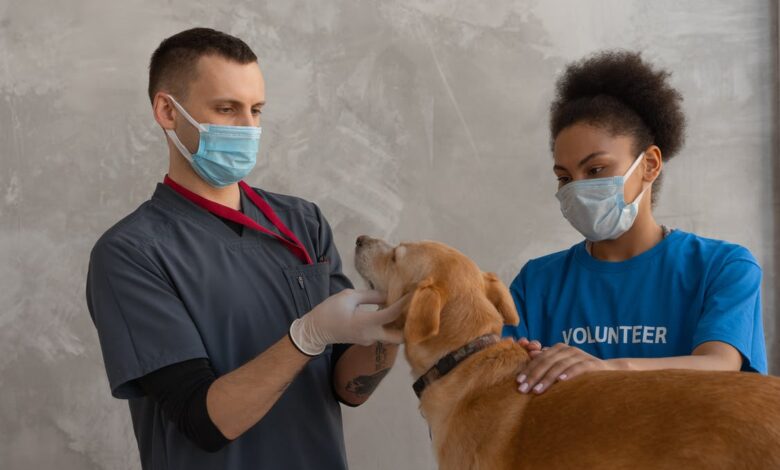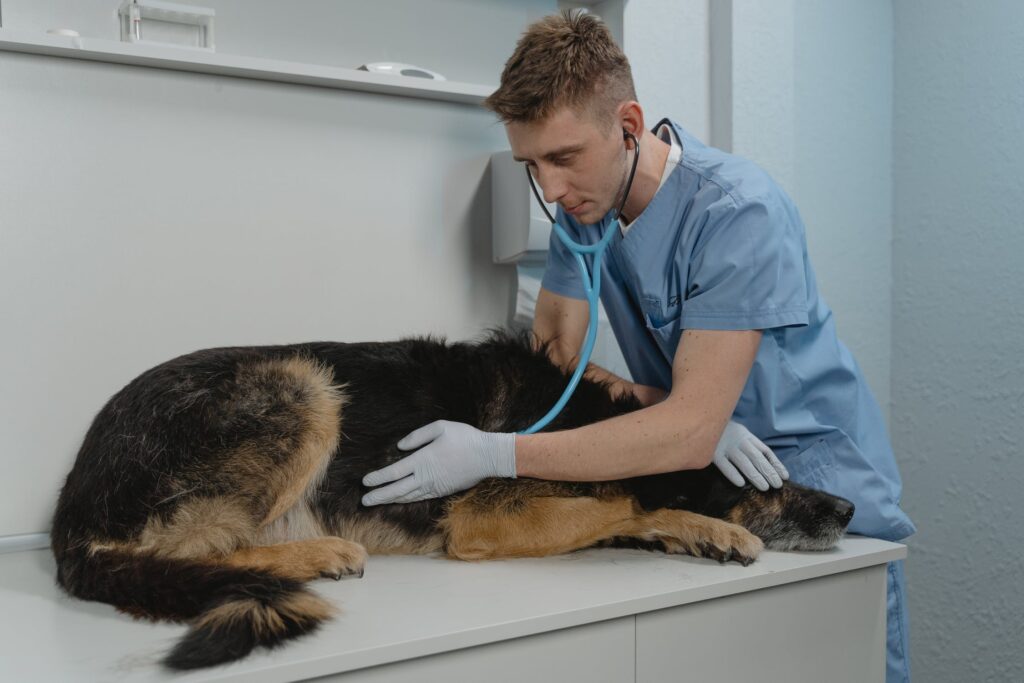8 Common Health Problems for Dogs

There are many reasons a dog can become ill. It is important to understand the most common health problems that your pet faces, along with their signs and what you can do about them. Here are the most common health issues that affect puppies.
1. Weight
Poor nutrition can cause severe disorders in dogs, such as obesity and weight loss. These disorders mainly occur due to a lack or overabundance of proper nutrients. Good nutrition in dogs should be carefully evaluated and managed throughout their life.
Obesity in dogs is very common, and also one of the most preventable health issues through a proper diet and exercise. Puppies that don’t get enough food will lose weight, have a weak immune system, and become prone to diseases and allergies, leading to death. Veterinarians recommend exercises and healthy foods like those from dogfoodcare.com as an appropriate treatment plan.
2. Ear infection

An ear infection is a common health problem in dogs. When left untreated, it can bring some serious health complications. Inflammation of the ear canal is most common in floppy-eared and other long-eared dogs, as their ears are lined with hair that traps moisture and debris inside. Keeping the hair around their ears trimmed can be of great help. Other possible causes of ear infections include yeast, fungi, and ear mites.
Signs your “best friend” might have an ear infection include head shaking, tilting, vigorous scratching of the ear or around the ear, odor in the ear, loss of balance, ear discharge, and hearing loss.
Some symptoms seem more evident than others. An ear infection can happen quickly, and your dog can go from good condition to suffering from a painful ear infection in just a few hours. It is always advisable to consult a veterinarian if this occurs.
3. External parasites
External parasites in dogs are numerous, and may cause a lot more than minor skin issues. These parasites also carry and transmit diseases that can cause serious life-threatening illnesses.
The most common external parasites in puppies include fleas, ear mites, scabies, lice, and walking dandruff. There are many approved over-the-counter products available to prevent and treat these parasites, but getting a prescription from a veterinarian before administering any is always recommended.
Groom your dog and check for any external parasites regularly. Should your dog get infected, other household items may need to be treated too to kill or prevent further infections. You may need to familiarize yourself with parasitic prevention methods for year-round prevention.
4. Urinary infection

Bacterial urinary tract infections are the leading cause of UTIs in dogs. It can develop as a result of a weak immune system, or when feces and debris enter the urinary area. Although urinary infections are most common in older puppies aged seven years and above, any dog can get infected. Female breeds are more prone to a UTI compared to males. This is because male dogs have a longer urethra, and it takes longer for the bacteria to travel upward.
The most common symptoms of urinary infection are blood or cloudy urine, straining or whimpering during urination, dribbling urine, licking around the urinary opening, and fever. It is important to get your dog treated immediately after the symptoms appear. In more severe cases, such infections can cause cancer, bladder disease, kidney disease, and prostate disease.
5. Diarrhea
The main causes of diarrhea in dogs include stress, internal parasites, food problems, or infections like parvovirus. Its symptoms are loose, watery, or liquid stool. To manage this, be sure your dog has access to plenty of clean water and plenty of rest.
While most puppies that have diarrhea are easily treated from home without the need to rush to a clinic, others will require veterinary attention. Diarrhea shouldn’t be ignored, as it can easily lead to dehydration. If symptoms persist for more than a day or it’s accompanied by vomiting or bloody stool, it is essential to consult your vet immediately.
6. Dental disease

While it may appear harmless, bad breath could be a symptom of a severe dental disease. Periodontal disease is a bacterial infection that causes inflammation of gums and tooth attachments. This causes a dog to experience pain while eating, lose appetite, lose weight, and have bad breath.
Bad breath is often an overlooked health concern, but plaque and tartar harbor dangerous bacteria in your pupy’s mouth. In its advanced form, it can cause teeth to fall out. If it enters the bloodstream, it can lead to other severe issues like widespread organ damage to kidneys, heart muscle, and liver.
Symptoms to look out for are; difficulty eating, bad breath, discharge from the nose, weight loss, tooth discoloration, bleeding gums, visible tartar, swelling under eyes, loose or missing teeth, red, swollen, or bleeding gums. Take your dog to the veterinarian for treatment if you notice these symptoms.
7. Kennel cough
Kennel cough causes inflammation of the dog’s voice box and windpipe. If your dog is constantly making noises that sound like they are choking, it may be a case of kennel cough. Symptoms to look out for are; nasal discharge, eye discharge, coughing up white foamy phlegm, fever, and a persistent dry cough with a honking sound.
Kennel cough usually clears up on its own. However, it is contagious, and if your dog is infected, you should keep it away from other animals as you contact your veterinarian.
8. Rabies

Dogs can get rabies if they are bitten or come into contact with an infected animal. The likelihood of your dog contracting rabies is low, since most states require a dog to be vaccinated. Given the rapid onset of the disease and the survival rate once symptoms are present is staggeringly low, it is important to know the signs before it’s too late.
Signs to look out for include fever, sensitivity, odd behavior, vomiting, uncoordinated walking, and low energy. Since the odds of surviving are low, always make sure that your dog is vaccinated. If you have reasons to believe that your dog is infected, it is best to consult with your vet, as early treatment is the best chance of survival.
Endnote
Despite giving your dog the best care, health problems can still occur. Keep a keen eye on your pet and make it a habit to always consult with your veterinarian if you suspect that anything could be amiss. Maintain good records with your vet, as this will help with your puppy’s medical history when needed and make it easy to make the best care recommendations.



